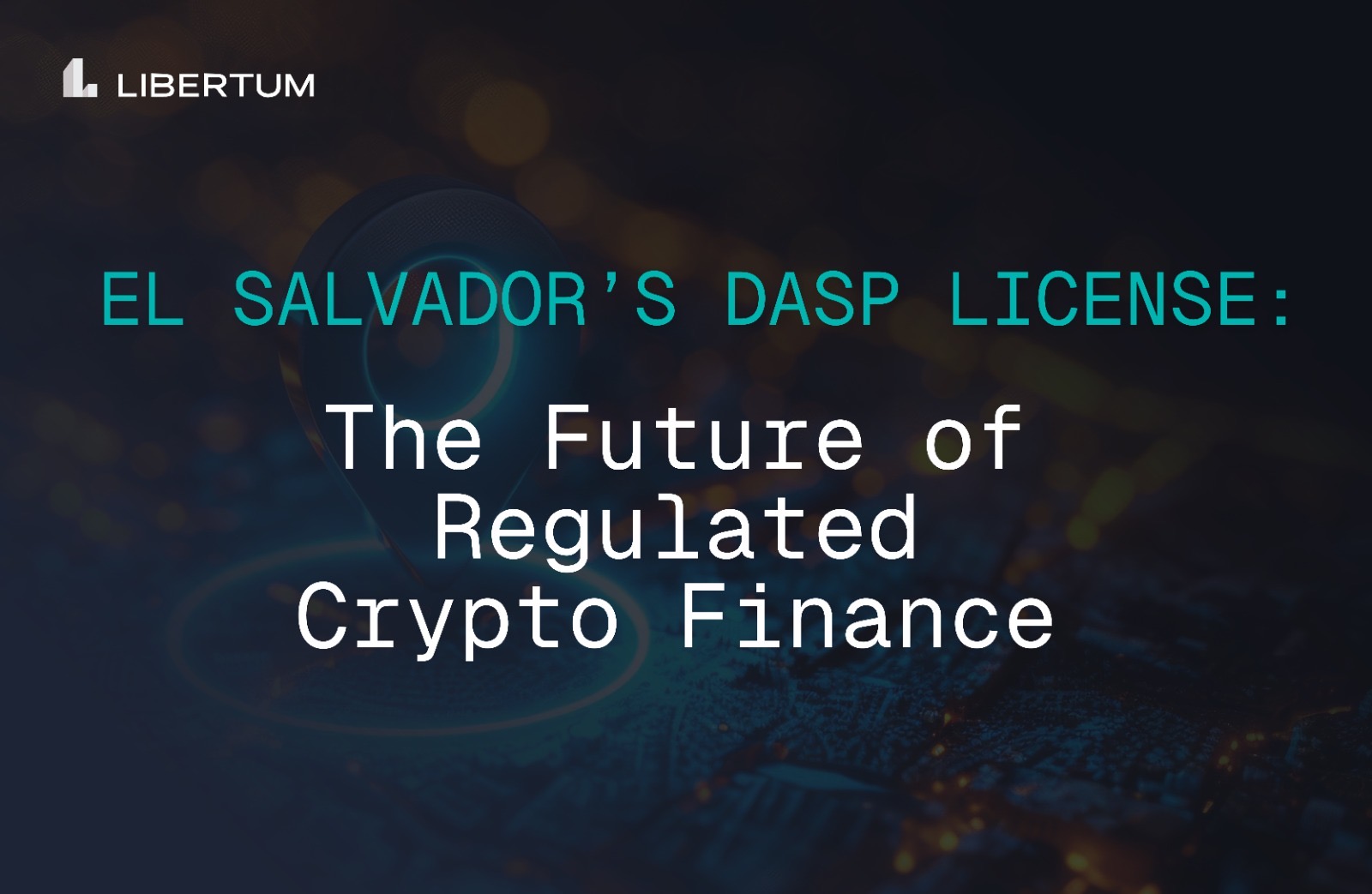For most of its short history, the digital asset industry defined itself in opposition to regulation: freedom, anonymity, and disintermediation. But as every revolution eventually learns, freedom without structure cannot scale, and without trust, innovation remains trapped on the margins.
Regulation, when designed intelligently, does not constrain innovation — it enables it. It gives form to trust, defines accountability, and creates the stable foundation on which global markets can grow.
Enter the DASP license. In jurisdictions pioneering the next phase of digital finance infrastructure, such as El Salvador, a DASP license is not a bureaucratic overlay but a strategic asset. For platforms building the future of tokenization, it’s a public declaration of crypto compliance and responsibility. It tells investors, partners, and governments that every token, every transaction, and every interface is anchored in transparency and law.
At Libertum, we view crypto regulation not as a barrier but as the architecture of confidence — and a DASP license is far more than permission. It’s the badge of readiness to play by the rules of both innovation and institution.
The Strategic Shift: From “Move Fast and Break Things” to “Move Deliberately and Last”
In the early days of crypto, regulatory avoidance was worn like a badge of honor. The mantra: disrupt, evade legacy systems, resist “old finance” oversight. But the market’s maturation has brought a reverse logic: to scale, one must institutionalize. And to institutionalize, one must comply.
Crypto regulation has now become the new frontier of competitive advantage for three reasons:
- Institutional capital demands clarity: Large-scale investors demand regulated crypto businesses, transparent jurisdictions, and recognized compliance frameworks.
- Trust becomes a monopoly: When retail, institutional, and enterprise worlds converge, trust becomes the scarce asset — and compliance is the trust architecture.
- First-mover advantage in regulation: Those who embed compliance early build defensibility; those who don’t become vulnerable to market cycles and legal shocks.
A platform with a DASP license signals longevity: we operate for the long term, within a regulated framework.
Understanding the DASP License and Why It Matters
What Is a DASP License?
A Digital Asset Service Provider license authorizes a business to offer services related to digital assets, including trading, custody, token issuance, derivatives, wallets, or payment infrastructure. In El Salvador, the license covers a broad set of digital-asset activities, making it both flexible and future-proof.
Why It Matters for a Regulated Crypto Business
- Legal clarity: Oversight by national regulators ensures AML/KYC, cyber security, and compliance standards.
- Institutional readiness: Partners and investors prefer regulated, safe, and credible operations.
- Global access: A DASP license simplifies international partnerships and listings.
- Competitive differentiation: In a world of unlicensed actors, licensed platforms stand apart.
Regulation as the New Competitive Advantage
A. Builds Trust & Transparency
A DASP license communicates: We operate in the open. Investors gain enforceable rights, traceable yields, and transparent exits.
B. Opens Institutional Doors
Banks, managers, and custodians require compliance before partnering.
C. Reduces Regulatory Risk
A DASP license embeds compliance into a company’s DNA.
D. Improves Market Positioning
Licensed players become trusted brands.
E. Enables Global Expansion
Forward-thinking jurisdictions amplify international credibility.
How to Think About the DASP License Strategically
Step 1: Align your business model — exchange, tokenization, custody, lending.
Step 2: Select a jurisdiction with clear regulation — El Salvador stands out.
Step 3: Build compliance early — AML/KYC, governance, reporting.
Step 4: Use licensing as a signal — credibility becomes a growth engine.
Step 5: Maintain standards — compliance strengthens long-term trust.
The DASP License and Tokenized Real-World Assets
For platforms tokenizing real-world assets, regulation is essential. A DASP license ensures enforceable legal rights, compliant yield distribution, and transparent governance. It connects DeFi innovation with TradFi legitimacy.
The Libertum Perspective: Regulation as Architecture
At Libertum, regulation is a design principle. Our infrastructure blends compliance, security, and institutional-grade engineering. Pursuing a DASP license aligns us with national frameworks that validate blockchain as economic infrastructure.
The New Standard for Digital Finance
The DASP license is the new badge of maturity. It ensures that every transaction and user interaction operates with transparency and legal assurance.
The future belongs to builders who understand that trust is the real innovation. Those who embrace regulation won’t just survive — they’ll define the next era of digital finance.
